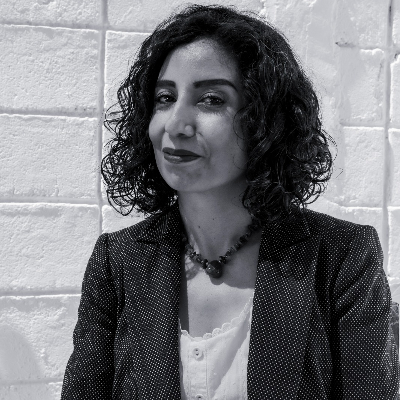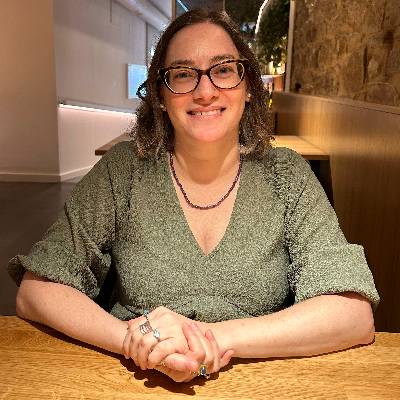This dialogue between poet and translator follows the translation and publication of The Mistaken Place of Things (Eulalia Books, 2024) by Mexican poet Gabriela Aguirre, translated into English by Laura Cesarco Eglin.
Laura Cesarco Eglin: I know you have other books of yours translated into Portuguese—what was the experience and process like of having El lugar equivocado de las cosas translated into English?
Gabriela Aguirre: The book of mine that was translated and published in Portuguese is precisely El lugar equivocado de las cosas, and the truth is that in both cases (now that you have also translated it into English), the experience of the translation process has been something completely new and enlightening. It has made me go back to the poems in the book and led me to think about the origin and the “why” behind the choice of certain words and certain images, because in order to preserve the poetic meaning of the lines, you have to go back to it. Then, as a poet, you remember that verbal choices are ultimately what leads the reader to the construction of the poetic imaginary that you as a translator are looking to preserve at all costs. It has been like walking down a familiar path, only now taking you by the hand, as you ask me questions about different elements we find in the landscape—ones I might not have noticed before, or at least not from your point of view. That’s why I say it has been enlightening: I have learned more about my own poems and about my own poetics from the questions you asked yourself as a translator and asked me as the author.
That is why the question I have to ask is: What was the process of translating The Mistaken Place of Things like for you? But first—and this is a question from the heart—I would like to know why you chose to translate me and not another poet.
L.C.E.: I like that image of walking hand in hand; the translator showing the poet the landscape, a little defamiliarized and, at the same time, returning home.
When they lent me your book, I already loved the book as an object, the design. I fell in love with the poetic voice, the speaker, in her investigations and search, and this rehearsal of being present and absent in different places—literal and metaphorical.
I find it fascinating to see how another poet looks at the world. In this case you, and the questions you ask yourself in this book. I wanted to go on reading you, get to know your text, get to know you.
Another thing I loved was listening to you read some of your poems, because that added another layer to the reading I had done of your poems. There, you were the one that took me by the hand through the landscape. The translation process with each poet I translate is different, because translation generates dialogues, relationships, and, therefore, with each poet a different dynamic is generated. I love entering into these multiple dialogues. The dialogue with your text, the dialogue between you and me, the dialogue between our texts, etc. And I really enjoy telling the poet I’m translating, as I did with you, what decision I make and why, and talking about language, clarifications, and continuing to read you on another level. A total delight.
I wonder if being in this translation process spills over into your creative process (poetry). That is, does it inspire you? Does it make you want to write? Or is translation not linked to poetry for you?
G.A.: I hadn’t thought about that. I think that it (the translation process) brings me closer to my creative process, in the sense that it makes me more aware of how I make the poems. As I was telling you, it makes me see them with a certain unfamiliarity. I believe all that which makes us aware of our poetics brings us closer to the creation of new poems. It’s also true that, aside from learning about your reading of my poems, I read my poems that are now also “your” poems, which made me a reader of a writing process that, although it started with mine, was now yours: your way of looking at things, your way of verbalizing an imaginary. In other words, and returning to yours, the dialogue between poets—and you are a poet—between poems, between poetics, always invites us to write. And regarding this, it occurs to me to ask you, what are you more, a poet or a translator? And, by the way, how does a poet become a translator?
L.C.E.: I see both practices as part of each other; they are always in dialogue, and both emerge from my perspective. That is, from my view on language and poetry: the agency of language, the responsibility that comes with using it. I understand poetry and translation as a modus vivendi and operandi because poetry and translation are precisely the practice of questioning and challenging the status quo. Poetry and translation are practices of depth: They require stopping, observing, reading carefully (a text, a situation, a person, the world), paying attention. Poetry and translation lead us to think, to spend time with what we feel, to be critical, to find other ways, and, above all, to understand that my way, my view, are not the only way or the only view. Translation and poetry do not allow for such deceptions.
First I was a poet and then I entered the literary translation world, although the plurality of languages, accents, and different cultures has always been a part of my life. Being a poet and a translator allow me to live in multiplicity. It also opens up possibilities for creative approaches.
This brings me to The Mistaken Place of Things because it is precisely a book about observation, where the speaker observes the world around her, her past. She (and the book) explore places, possibilities, spaces. Given that El lugar equivocado de las cosas was published in 2011, do you feel that you are finished with that line of investigation? How does this book relate to the poetry you are writing now?
G.A.: I loved your answer, my Lau. Certainly, you are a poet who translates and a translator who poetizes. That is, in your case, each activity nurtures the other. I think you are a translator because you are a poet and you are a poet because you translate. If you did not believe in this—if this were not your view on language and poetry, as you point out—you would not have even translated my book. I don’t translate, but like you, I think poetry is a way of life, a way of being in this world. I firmly believe in that, and I believe that is also the reason why our poetics connected.
Going back to your question—first I have to say I liked that you called it a “line of research” because I think a writer is indeed a researcher—I would say, in some cases, I am done with certain lines and in others, I am not done and I actually think I will probably go on writing about them for the rest of my life. There are topics that touch us deeply and therefore become recurring in our writing. One of those lines of investigation that I am possibly done with is the border and the desert because they respond to a very specific moment in my story, even to a geographical moment in my life. Among the recurring ones are, for instance, the body, the other—call it family, lover, friend, etc.—love and lack of love, madness. An example of this is some poems that I’m writing now about the changes in my body due to menopause and others about my last breakup. I wish I weren’t writing about the latter, but, well, that is how it happened and poems have started to come out.
However, as I was thinking of this answer, and rereading it, I realized that topics aren’t done with forever. That is, I could at some point write again about the border and the desert—what would change, in any case, would be the place of enunciation, and that has certainly changed, since I am now in another moment. But I cannot really say for sure that I will never write about that again. Maybe there are people who can be sure, but not me.
Speaking of ending and beginning—or not—will you continue translating/writing poetry? Or have you thought of venturing into other genres?
L.C.E.: It’s always been hard for me to see and talk about the future beyond the next six months. What I can say is that now I am writing/translating poetry. To engage with another genre also implies allowing yourself, that is, letting yourself explore another genre if you want to. So my answer could be: I’ll go on asking myself, or better yet, listening to myself to know my next steps. What I do know is that poetry will always be present. In the past, in the future.
I’d love to ask you that same question: Have you thought about venturing into other genres?
G.A.: I would love to be the author of short stories or novels; these are more popular genres both in the publishing world and economically, but the truth is that, even though I am capable of reading and analyzing narrative texts or essays, I don’t know how to work with narrative techniques. That is on the one hand. On the other hand, I think each genre has a breath, a rhythm. And, of course, each genre also has different intentions, and according to them, a literary universe is built. My breathing, my rhythm, are poetic, and my intention when presenting a character, for example, is also poetic. Sometimes my poems tell a story and characters walk through them, but my poems have never had the intention of being stories. In The Mistaken Place of Things there are several poems that narrate: a trip to the dunes of the Samalayuca Desert, a surgery, a love story.



